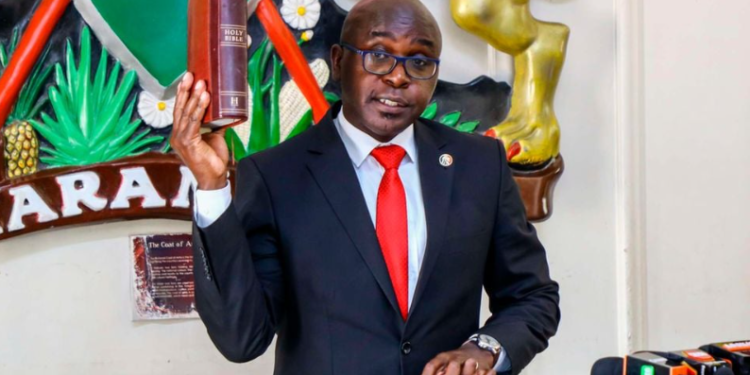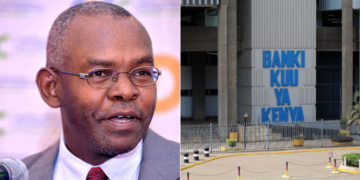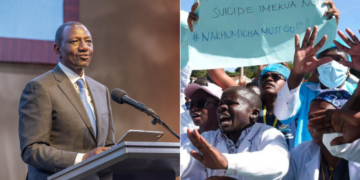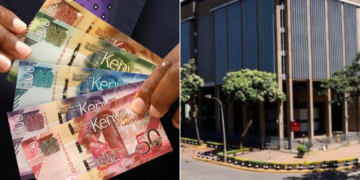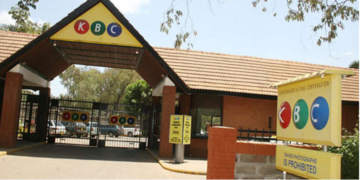The Kenya Revenue Authority (KRA) has emerged as one of the best-performing institutions, showcasing notable improvements in compliance indices across various thematic areas.
According to a Public Service Commission (PSC) report, apart from KRA, other performers include the Kenya Accountants and Secretaries National Examination Board (KASNEB), National Environment Trust Fund (NETFUND), and Kibabii University.
Additionally, institutions such as the Capital Markets Authority (CMA), Kenya Trade Network Agency (KENTRADE), Moi Teaching and Referral Hospital (MTRH), Kenya Accreditation Service (KENAs), Commodities Fund, and the Water Sector Trust Fund (WSTF) also garnered acclaim for their outstanding performance.
The report further revealed that the overall compliance index for all evaluated institutions has surged to 46.01%, marking a substantial increase of 43.1% compared to the previous fiscal year.
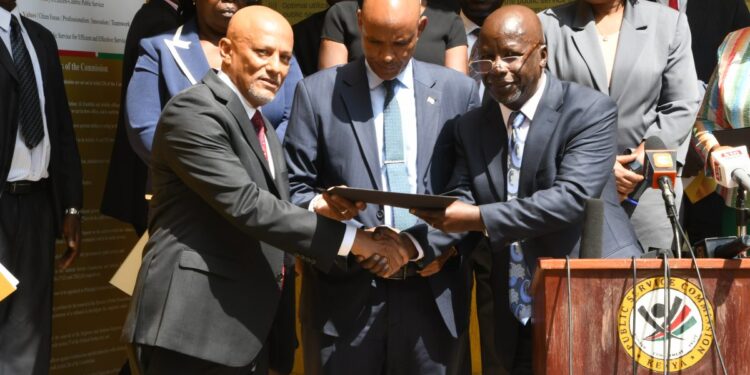
Among the highlighted sectors, Constitutional Commissions and Independent Offices demonstrated the highest improvement, soaring to 53.62% from 45.1%.
Following closely behind, Technical and Vocational Education and Training (TVET) organizations also demonstrated commendable progress, with their compliance index climbing to 35.75% from the previous 29.2%.
Nevertheless, other sectors such as State Corporations and Semi-Autonomous Government Agencies (SAGAs) have shown a considerable improvement, reaching a compliance index of 54.23% from 50.3%.
Similarly, Statutory Commissions and Authorities have witnessed growth, achieving a compliance index of 50.03% from 47.0%.
Also Read: KRA Launches Simplified eTIMS Solutions for Businesses
PSC Findings on KRA and other Institutions
In addition, Ministries and State Departments have improved their compliance index to 44.0% from 42.3%, while Public Universities have achieved a compliance index of 55.3% from 54.5%.
This underscores the consistent excellence of Public Universities, maintaining their position as top performers in the 2021/2022 fiscal year.
Out of the total number of officers, which amounts to 156,346, representing 61.7%, fell within the age range of 18 to 45 years, with 29.6% classified as youth.
Meanwhile, 91,932 officers, accounting for 36.3%, were between the ages of 46 and 60 years. The percentage of officers aged above 60 years slightly rose to 1.8%, marking an increase of 0.49% from the 1.3% reported in the fiscal year 2021/22.
Furthermore, the total sum of funds lost in prosecuted cases amounted to Ksh. 605.1 million, whereas Ksh. 222.7 million was successfully recovered.
Also, a total of 283 organizations, constituting 54.1%, implemented diverse programs aimed at enhancing employee wellness.
Also Read: EACC Arrests Govt Official Over Fake Degree
Gender and PWDS
The report also indicates that gender representation in the public service remains skewed, with 157,473 individuals, constituting 62.2%, identified as male, while 95,845 individuals, accounting for 37.8%, are female.
To add on, the representation of Persons with Disabilities (PWDs) in the public service stands at 1.53%, falling short of the constitutional threshold of 5%.
This gap highlights the imperative for targeted measures to enhance the participation and inclusion of PWDs in government institutions, ensuring their voices are adequately represented and their needs addressed.
Also, the report delved into ethnic representation, revealing that 44 ethnic communities are represented in the public service.
However, out of these communities, only 35, comprising 76%, have achieved normal representation levels.
